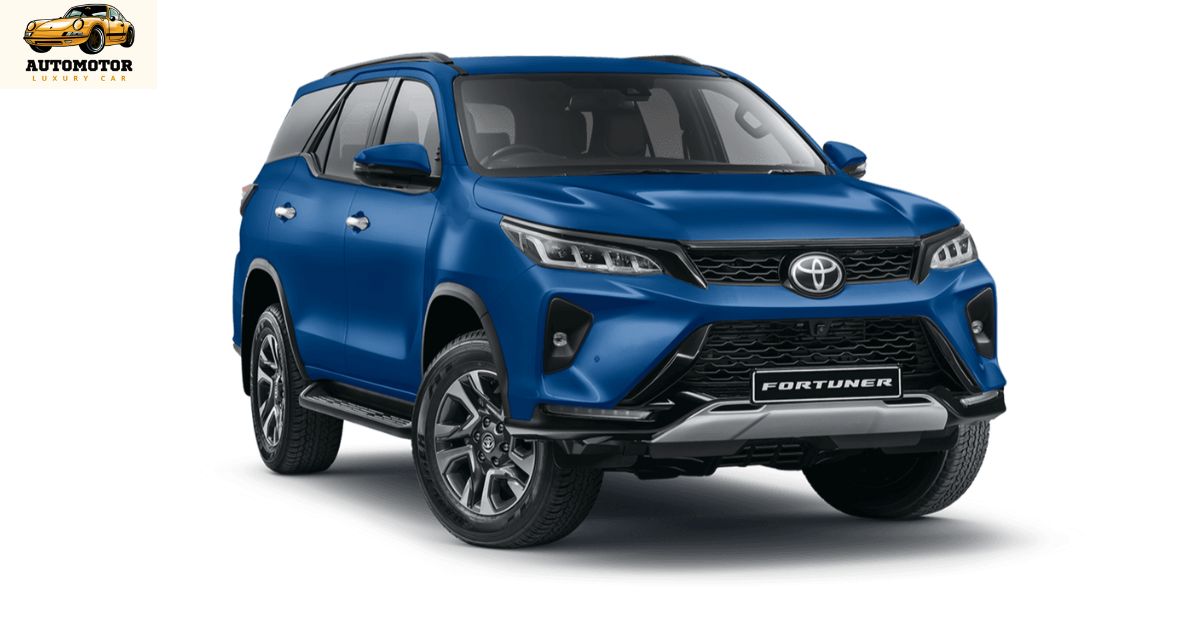The Toyota Fortuner has long been a trusted name in the SUV segment, especially in markets like India, Southeast Asia, Australia, and parts of Africa. Known for its ruggedness, reliability, and off-road prowess, the Fortuner has carved a solid reputation among adventure seekers and urban drivers alike. In 2025, Toyota took a bold step forward by introducing the Toyota Fortuner 48V, marking a significant evolution in its powertrain technology.
This new model is more than just a facelift or a minor upgrade. It represents Toyota’s move towards cleaner, more efficient technologies without compromising the performance and capability that the Fortuner is known for.
What is the 48V Mild Hybrid System?
The highlight of the Toyota Fortuner 48V lies in its integration of a 48-volt mild-hybrid system. This system pairs a conventional internal combustion engine (in this case, the proven 2.8-liter diesel) with a compact electric motor and a 48V lithium-ion battery.
Unlike full hybrids or plug-in hybrids, a mild-hybrid system doesn’t allow for electric-only driving. Instead, it assists the engine in various ways:
- Start-stop functionality: Automatically shuts off the engine at traffic signals and restarts it smoothly.
- Torque assist: Provides additional torque during acceleration, improving responsiveness.
- Regenerative braking: Recovers energy during deceleration and stores it in the battery.
- Idle smoothness: Reduces vibrations and improves refinement, especially at low speeds or while idling.
Powertrain and Performance
Under the hood, the Toyota Fortuner 48V retains the familiar 2.8-liter, four-cylinder turbo-diesel engine, which now benefits from the added electric motor’s torque support. The engine produces around 201 horsepower and 500 Nm of torque, but the mild hybrid system enhances initial throttle response and helps improve fuel economy.
Thanks to the electric boost, the Fortuner 48V feels more refined and responsive, especially in city driving and during overtaking. More importantly, the hybrid system subtly fills in torque gaps, making gear shifts smoother and acceleration more linear.
The 6-speed automatic transmission remains, mated to either rear-wheel-drive or four-wheel-drive configurations. Off-road capability remains strong, with features like:
- Hill Descent Control
- Differential lock
- Low-range gearing
- Traction control optimized for various terrains
Improved Fuel Efficiency and Emissions
One of the key advantages of the 48V system is better fuel efficiency. Toyota claims an improvement of up to 10% in mileage, which is significant for a vehicle of this size and weight. In real-world usage, the Fortuner 48V can deliver around 13–14 km/l, depending on driving conditions.
Moreover, the mild hybrid system helps reduce tailpipe emissions, aiding Toyota’s goal of achieving carbon neutrality. For buyers, this means lower running costs, especially in markets with rising diesel prices and stricter emission norms.
Exterior and Interior Enhancements
Design-wise, the Fortuner 48V doesn’t stray far from its diesel-only sibling, but there are subtle tweaks:
- A new grille design and LED headlamps
- Blue accents to highlight its hybrid nature
- Mild restyling of the bumpers and alloy wheels
Inside, the cabin retains its spacious, commanding layout, with a few modern touches:
- A larger 9-inch touchscreen infotainment system with wireless Apple CarPlay and Android Auto
- Digital instrument cluster with hybrid system information
- Wireless charging, ambient lighting, and ventilated seats (in higher variants)
- Toyota’s Safety Sense suite: Adaptive cruise control, lane departure warning, and automatic emergency braking
Who Is It For?
The Toyota Fortuner 48V targets:
- Families and urban drivers who want a large, comfortable SUV
- Off-road enthusiasts who don’t want to compromise on capability
- Eco-conscious buyers who want better fuel economy without going fully electric
- Fleet operators and long-distance travelers looking to reduce diesel consumption
It bridges the gap between conventional diesel SUVs and fully electrified models, making it a practical choice for markets where EV infrastructure is still developing.
Pricing and Availability
As of mid-2025, the Toyota Fortuner 48V is available in several Asian and African markets, with expected rollout in South America and the Middle East by the end of the year. The pricing is approximately ₹2–3 lakhs higher (or equivalent in local currency) than the standard Fortuner diesel variants.
While it’s a premium, the added efficiency, better refinement, and future-readiness justify the cost for many buyers.
Final Thoughts
The Toyota Fortuner 48V represents a smart evolution of an already legendary SUV. With the mild-hybrid system, Toyota has managed to enhance efficiency and driving experience while maintaining the core strengths of the Fortuner—ruggedness, reliability, and road presence.
